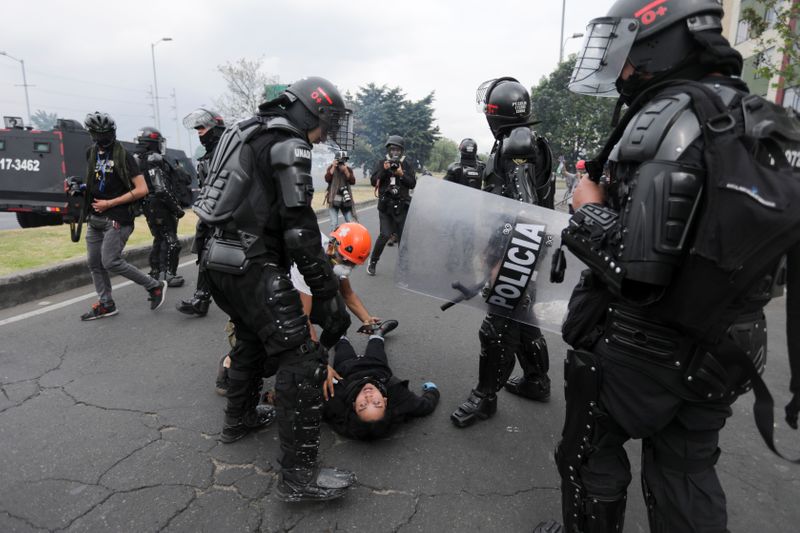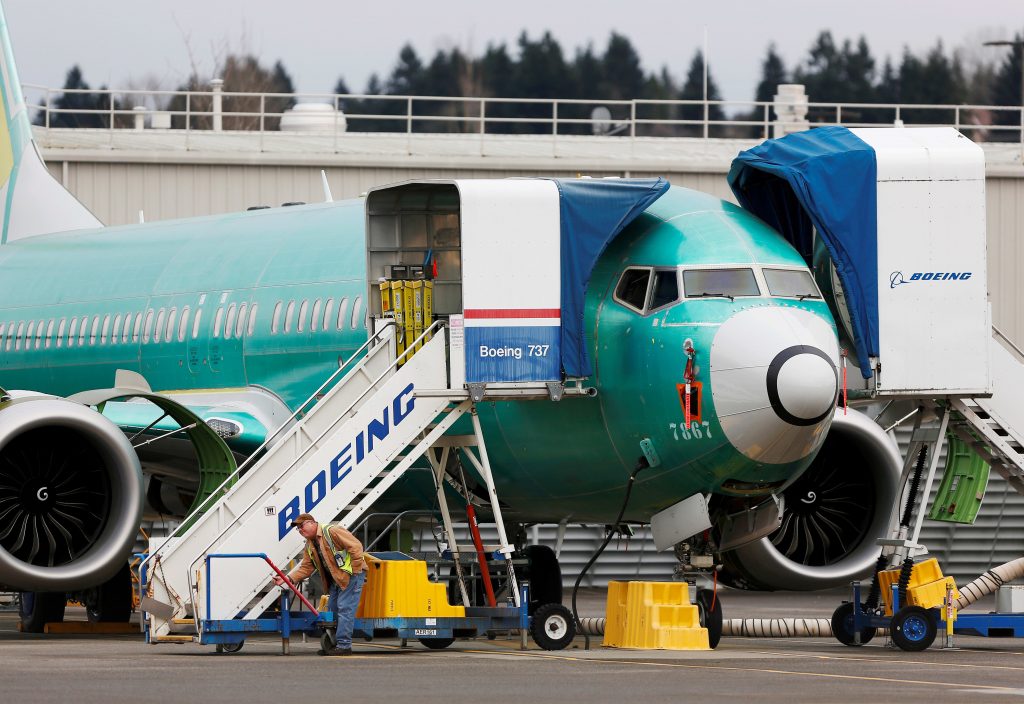
A demonstrator lies on the ground as security forces surround her during a protest against the government of Colombia’s President Ivan Duque, in Bogota, Colombia, January 21, 2020. REUTERS/Luisa Gonzalez
January 21, 2020
By Luis Jaime Acosta
BOGOTA (Reuters) – Colombia’s government is willing to discuss the country’s problems with leaders of demonstrations against the social and economic policies of President Ivan Duque, but some protest demands are “unconstitutional”, a presidency official said.
Marchers in the Andean country held mass demonstrations in November and December last year to demand a varied laundry list of concessions from Duque’s right-wing government. New protests are expected on Tuesday.
The unions and student groups who make up the National Strike Committee initially made 13 demands in talks with the government. These included stepped-up efforts to stop the murder of human rights activists and implement a peace deal with leftist rebels and the dissolution of the riot police force, who have drawn ire after a marcher was killed by a projectile.
The list eventually expanded to include 104 points covering fiscal, economic, trade and environmental demands, said presidency official Diego Molano, who leads negotiations for the government.
“We’ve found that some of the demands, an important number of them, are unconstitutional and don’t correspond to executive branch functions,” Molano told Reuters late on Monday.
“Others aren’t on the government’s agenda because they correspond to a new political or economic model and correspond more to structural changes at the depths of government, of the Colombian state, or they are financially inviable,” he added.
One demand is that state-run oil company Ecopetrol become exclusively public property and exclude private investors, Molano said, an effort that would cost more than $4.5 billion.
The committee has asked for one-on-one talks with the government but Duque has insisted on participation by a wider swath of interest groups, including business organizations.
“The government of President Duque has all the willingness to keep talking, to advance in a conversation that allows us to move to proposals, to collaborate and solve problems,” Molano said. “On the points where we can find agreement we will seek concrete agreements.”
A top union leader told Reuters last week that protests will restart with more intensity this year.
Protests in 2019 were largely peaceful, but were marked by looting and attacks against public transport during their first few days, leading Cali and Bogota to institute curfews.
Five people died in connection with the demonstrations, which followed upheaval in other Latin American countries such as Ecuador, Chile and Bolivia.
The death of teenage protester Dilan Cruz, injured by a projectile fired by riot police, became a rallying cry for many marchers. The squad is now banned from using the weapon that killed Cruz.
(Reporting by Luis Jaime Acosta; Writing by Julia Symmes Cobb; Editing by Chizu Nomiyama)

